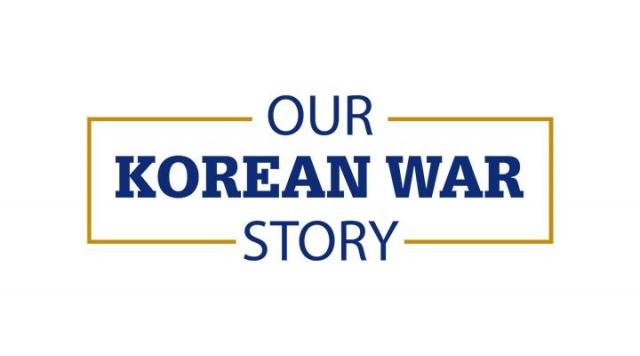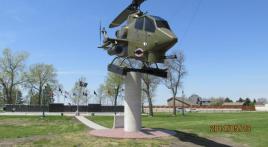Milton Weinberg: Life Member, Post 264
My father, Milton Weinberg, M.D., was in World War I overseas as a physician, and he was a member of The American Legion.
My father was disabled with severe heart disease and was unable to pay for college, so I went to Duke University in September 1941 on an American Legion scholarship.
As a pre-med student I was inducted into the Navy V-12 program in 1943 and then into medical school, completing medical school on the GI Bill as a WWII veteran.
I began my internship in January 1947, and was in my third year of surgical residency in June 1950 when the Korean War broke out. With a history as described above, I felt I had an obligation to serve my country, and so volunteered to join the Army. I was appointed captain, Medical Corps, of the Army of the United States on Nov. 8, 1950.
The following is the best of my Korean War memory.
I was inducted into active duty at Fort Sam Houston, Texas, on Dec. 30, 1950, for Medical Service Officers Orientation; I departed Fort Sam on Feb. 3, 1951, for Korea via San Francisco. MATS planes 10 hours to Hawaii, 12 hours to Wake Island, 12 hours to Tokyo; then by train to Sasebo, Japan, and on to Korea by a former Japanese troop ship, Koan Maru.
I arrived in Pusan in early February, was forwarded to a small town some miles north of Pusan to the 25th Division Clearing Company. This was a small unit of three doctors with corpsmen and sufficient supporting staff to attend to casualties needing care before reaching the MASH units. The two doctors there when I arrived – captains Barry Weber (commanding) and Felix Cataldo - were experienced and capable in moving with the 25th Division and providing medical care to hundreds of wounded men. Jack Benny and Errol Flynn came and entertained in relative quiet moments. President Truman removed Gen. MacArthur from Korea during this period
In July, because I had three years of surgical experience in residency, I was transferred to the 8055 Mobile Army Surgical Hospital (MASH), located farthest east, and receiving casualties from divisions First Cavalry, 24th and 25th; the United Kingdom Brigade and the Turkish Brigade. Going west, other Army units were served by the 8063 MASH, the 8076 MASH, and farthest west the Marine unit.
The 8055 was commanded by Lt. Col. Thomas E. Beeler, Regular Army and board-certified surgeon who served in WWII, and taught us all how to take care of wounded men. Staffing called for 20 doctors and 20 nurses, with corpsmen and personnel to manage three segments: living quarters; storage for tents, vehicles and other equipment; and the hospital.
The hospital – all tents with replaceable wooden floors - consisted of the triage area (receiving and preoperative care), the operating area and the postoperative care area.
All casualties came to the hospital to the receiving area, most by ambulance. The most critically injured were brought by helicopter. If it was determined that a patient’s wounds did not require immediate treatment, the patient was returned to the ambulance to be taken to a field hospital away from the battle area.
Most of 1951 was a period of very heavy fighting and casualties. At times the 8055 received a thousand or more casualties in 24 hours over several days.
The unit moved forward or retreated as the battle lines moved, splitting in such a way that patient care and operating was maintained throughout the move. Beeler was a master at seeing that the 8055 functioned as designed. It has been estimated that 97 percent of wounded men reaching a MASH unit survived their wounds.
I was promoted to major (temp) in October 1951, was rotated back home in January 1952 to Fort Knox, Ky., and was separated from service Dec. 31, 1952. I received the Korean Service Medal, the United Nations Service Medal, and a Bronze Star Medal for my time in Korea.
My Bronze Star citation read as follows:
HEADQUARTERS
EIGHTH UNITED STATES ARMY KOREA (EUSAK) APO 301
C I T A T I ON
BRONZE STAR MEDAL
Major Milton Weinberg, Jr., 0991946, Medical Corps, United States Army. Major Weinberg, a member of the Mobile Army Surgical Hospital, 8055th Army Unit, is cited for meritorious service in connection with military operations against an armed enemy during the period 23 July 1951 to January 1962. Serving as a General Surgeon, Major Weinberg consistently carried out his duties in an exemplary manner. Working under the most difficult conditions and at a time when there was an unduly high influx of patients, he displayed great surgical skill and outstanding professional ability. His tireless devotion to duty resulted in the saving of many lives and contributed immeasurably to the success achieved by his hospital in accomplishing its mission. The meritorious service rendered by Major Weinberg throughout this period materially furthered the cause of the United Nations in Korea and reflects great credit on himself and the military service.
(CC 544, 14 Sep 52)
[Visit https://www.legion.org/honor/photos/255486/our-korean-war-story-surgeons... to see more photos.]



